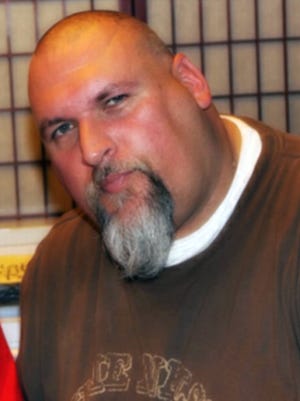Man fighting for life against flesh-eating bacteria

HOUSTON — A man who took his family to the beach a little more than a week ago now is fighting flesh-eating bacteria in the intensive-care unit of a hospital here.
Doctors had to amputate the right leg of Brian Parrott, 50, of Jacinto City, Texas, because of the infection, his family said Monday.
“Today, he made the statement, ‘I don’t know how much more of this I can take,’ ” said Donna Dailey, Parrott’s mom.
Relatives are in shock over how Parrott got the infection.
“The problem I have is he didn’t know about it,” Dailey said. “If (his family) had known about it, they surely wouldn’t have put (my) great-grandkids or his grandkids" in the water.
Parrott, his son and grandchildren swam for at least two hours June 12 in the waters of a Galveston, Texas, beach without trouble. But days later, Parrott began vomiting and noticed sores on his leg.
Harris County health officials have not confirmed that Parrott has a Vibrio vulnificus infection, the bacteria commonly known as flesh eating because the toxins kill skin cells they come in contact with through existing cuts and scrapes. And the origin of the infection also has not been confirmed.
But flesh-eating bacteria live in coastal waters and can infect when someone’s open wound is exposed to brackish or salt water, a Galveston Health Department spokesman said.
About 100 deaths occur across the USA every year, and about 80,000 people contract the infection. But the illness is most commonly spread by eating undercooked shellfish, according to the federal Centers for Disease Control and Prevention.
Mom's feet, hand amputated to stop flesh-eating bacteria
So far, Galveston has reported two flesh-eating bacteria infections in 2016. One victim contracted the disease from food, the other through a wound.
In 2015, Galveston’s Health Department reported eight infections, down from a confirmed nine cases in both 2014 and 2013.
Parrott’s loved ones said his infection has already cost him his career, where he works in security.
Now, his family worries what will happen next.
“I’m wanting to know if he’s going to live,” Dailey said.
Follow Larry Seward on Twitter: @LSewardKHOU